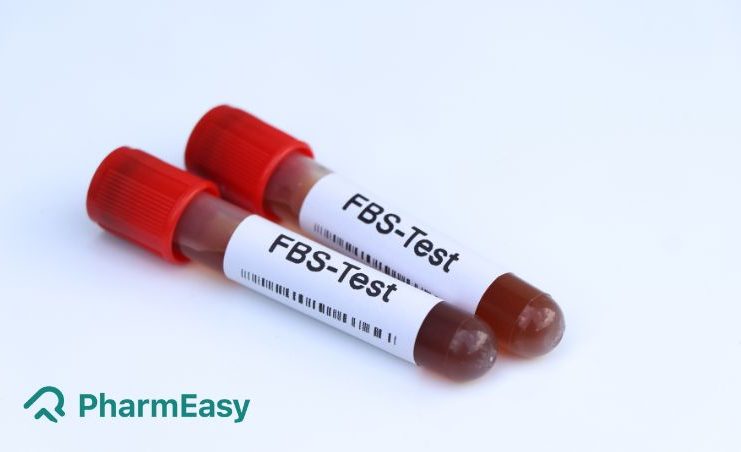Expert Tips On Fasting For Blood Tests
By Dr. Nikita Toshi +2 more

Get,

to manage your symptom
Get your,


4 Cr+ families
benefitted

OTP sent to 9988776655



You’ve successfully subscribed to receive
doctor-approved tips on
Whatsapp

Get ready to feel your best.

Hi There,



Register to Avail the Offer
Send OTPBy continuing, you agree with our Privacy Policy and Terms and Conditions

Hi There,

Trusted by 4 crore+ families

OTP sent to 9988776655



You have unlocked 25% off on medicines




Code: NU25

By Dr. Nikita Toshi +2 more
It is a common question whether or not to fast before a blood test. Whether you have to fast for 8 hours or 12 hours or less or more is based on the type of blood test you have been prescribed by your doctor. The specifics about preparing for your stated test will be notified to you by your healthcare provider. But it is common knowledge that is consuming food before most blood tests that mention fasting samples is a big NO! Even what you drink can seriously impact the outcome of the test. In case you are thirsty, you are allowed to drink a clear liquid like water, but other drinks like tea, coffee, coconut water or milk are strictly prohibited.

Even small things like smoking, chewing gum (sugarless or not) or even working out can rev up digestion and influence the test results. In this blog, let us find out a bit more about fasting before blood tests.
Fasting blood glucose estimation and lipid profile tests are commonly recommended tests which should be done in the fasting state. Overnight fasting therefore gives the most accurate test results.
Dr. Ashish Bajaj, M.B.B.S., M.D.
Table of Contents
The lab professional or doctor can advise you on fasting before a test you have booked. Make sure to ask about this if not notified. Some common blood tests that require fasting are listed below:
Recommended fasting time for the test: 9-12 hours.
Recommended fasting time for the test: Minimum 8 hours.
Recommended fasting for the test: 10-12 hours.
Recommended fasting time for the test: 12 hours.
Recommended fasting time for the test: 6-8 hours.
Recommended fasting time for the test: Minimum 8 hours.
Important thing and misconception is that fasting will reduce blood sugar report , it doesn’t. HbA1c shows average blood sugar of 3 months.
Dr. M.G. Kartheeka, MBBS, MD
Also Read: CRP Blood Test Cancer: Understanding its Significance in Diagnosis and Treatment
Usually, your doctor or the lab professional will ask you to fast before a test, meaning that they will advise you to refrain from eating or drinking anything besides water for several hours (typically 8+ hours). This is because whatever you consume, solids or liquids are absorbed into the bloodstream, which affects the results of certain blood test types. This is why the patient is asked not to consume anything before the test starts the night before.
Ø Schedule tests as early as possible.
Ø Pack a snack for your child to have immediately after the test.
Ø If your child has already consumed something prior to the test, best to reschedule the test.
Ø Inform the doctor that you are pregnant when they are prescribing a blood test.
Ø When you are pregnant, fasting is safe if you are not having a high-risk pregnancy.
Ø If the weather is sweltering, the doctor may ask you to drink lots of water and remain indoors.
Ø In case you are experiencing heartburn at the time of pregnancy, inform your doctor immediately.
Ø Don’t consume high-fat foods the night before.
Ø Do not drink alcohol.
Ø Do not smoke.
Ø Do not engage in a strenuous exercise until the test is over.
Also Read: Does Black Coffee Reduce Weight: Research-Based Insights into Coffee’s Role in Weight Loss
Getting ready for a blood test is not something to worry about. Like any routine test, it involves following a few simple guidelines. Some tests would require you to fast for 8-12 hours and some might demand shorter fasting periods. Everything will be informed to you by either your doctor or your healthcare professional at the lab prior to the test. While being prescribed a test by a doctor, ensure to notify them if you have any pre-existing condition or you are on any ongoing medications or herbal supplements to ensure that your test results are as accurate as possible.
Also Read: Signs to Stop Water Fasting: Boundary Between Health and Harm
Disclaimer: The information provided here is for educational/awareness purposes only and is not intended to be a substitute for medical treatment by a healthcare professional and should not be relied upon to diagnose or treat any medical condition. The reader should consult a registered medical practitioner to determine the appropriateness of the information and before consuming any medication. PharmEasy does not provide any guarantee or warranty (express or implied) regarding the accuracy, adequacy, completeness, legality, reliability or usefulness of the information; and disclaims any liability arising thereof.
Links and product recommendations in the information provided here are advertisements of third-party products available on the website. PharmEasy does not make any representation on the accuracy or suitability of such products/services. Advertisements do not influence the editorial decisions or content. The information in this blog is subject to change without notice. The authors and administrators reserve the right to modify, add, or remove content without notification. It is your responsibility to review this disclaimer regularly for any changes.

Leave your comment...
Comments